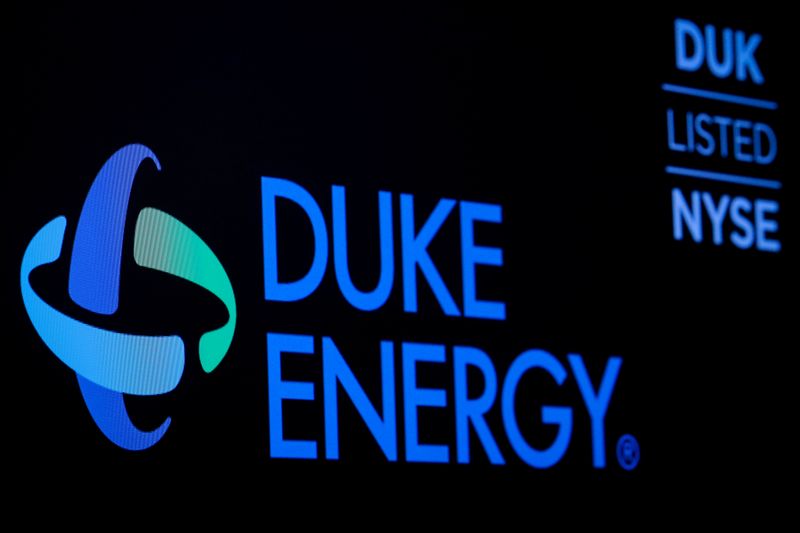By David French
NEW YORK (Reuters) - NextEra Energy Inc (NYSE:NEE) Chief Executive James Robo joked last week he does not pursue small acquisitions because the reward is not worth the "brain damage" of getting them past regulators.
Yet his $65 billion-plus pursuit of Duke Energy Corp (NYSE:DUK) will only pay off if he can overcome major regulatory hurdles in putting together the biggest ever U.S. utility deal, industry experts said.
Duke rebuffed a takeover approach from NextEra, the world's largest producer of renewable energy from wind and sun, as inadequate, Reuters reported last Wednesday. The deal would help accelerate Duke's transition away from coal- and gas-fired power plants.
NextEra, already the largest U.S. utility with a home base in Florida, would need approval from regulators in all six states where Duke operates: Florida, Indiana, Kentucky, North Carolina, Ohio and South Carolina. The Federal Energy Regulatory Commission would also need to assent, and the Department of Justice has authority to review the deal for potential antitrust issues.
"This kind of deal would raise significant regulatory considerations," said Jane Rueger, a partner at law firm Perkins Coie.
Florida would be the area of most regulatory concern, according to industry experts. Of the 8.1 million customers served by privately owned electric utilities in 2019, 7.3 million got their power from Duke or NextEra units Florida Power & Light and Gulf Power, according to the Florida Public Service Commission.
Utilities typically pledge to sell assets or build extra transmission lines to assuage anti-monopoly concerns. Duke Energy made such concessions to regulators in the Carolinas and Florida when it bought Progress Energy for $13.7 billion in 2012.
NextEra, however, would have to give up significant business in Florida and risk upsetting its relationship with regulators ahead of negotiations on new caps being agreed on the electricity rates it can charge, Guggenheim Securities analysts said.
"They could dilute their constructive Florida footprint, chasing after synergies and earnings accretion in less perceived quality states," the analysts wrote.
NextEra did not respond to a comment request. Duke declined to comment.
LOST ACQUISITIONS
NextEra has previously lost out on acquisitions by not acquiescing to regulatory demands.
When it sought to buy Texan power utility Oncor for $18.4 billion four years ago, NextEra was asked by the state regulator to operate Oncor at arm's length. NextEra declined, arguing it needed board control and the ability to extract cash to fund its dividend. It lost the deal as a result, with Oncor subsequently acquired by Sempra Energy (NYSE:SRE).
NextEra had previously spent two years trying to buy Hawaiian Electric Co for $4.3 billion. It abandoned that deal in 2016, amid regulatory concerns the benefits promised by NextEra to local consumers were insufficient.
To be sure, NextEra has clinched an acquisition in Florida in the past. It paid $5.1 billion for Gulf Power from Southern Co (NYSE:SO) in 2018, pledging to cap transmission rates for five years, according to a FERC statement at the time.
NextEra could also be called upon to make investments in local communities as part of the deal, industry experts said. Utilities are major employers in their state, and regulators often look for commitments that go beyond their standard demands for investment in their grids and restrictions on electricity rate hikes.
Duke has a foundation that contributes around $30 million annually to projects across its coverage area, including offering grants to local organizations and struggling customers, according to its website. The company also sponsors the center for performing arts in Raleigh, North Carolina.
NextEra also promotes its work in local communities on its website, including volunteering, education programs and sponsorship. The company raised $5.2 million for such projects in 2019.

"You would have to explain to each state regulator how a deal would impact their jurisdiction, from the perspective of ratepayers, jobs created or lost, where headquarters will be maintained, and how investment would flow there in the future," Rueger, the Perkins Coie lawyer, said.